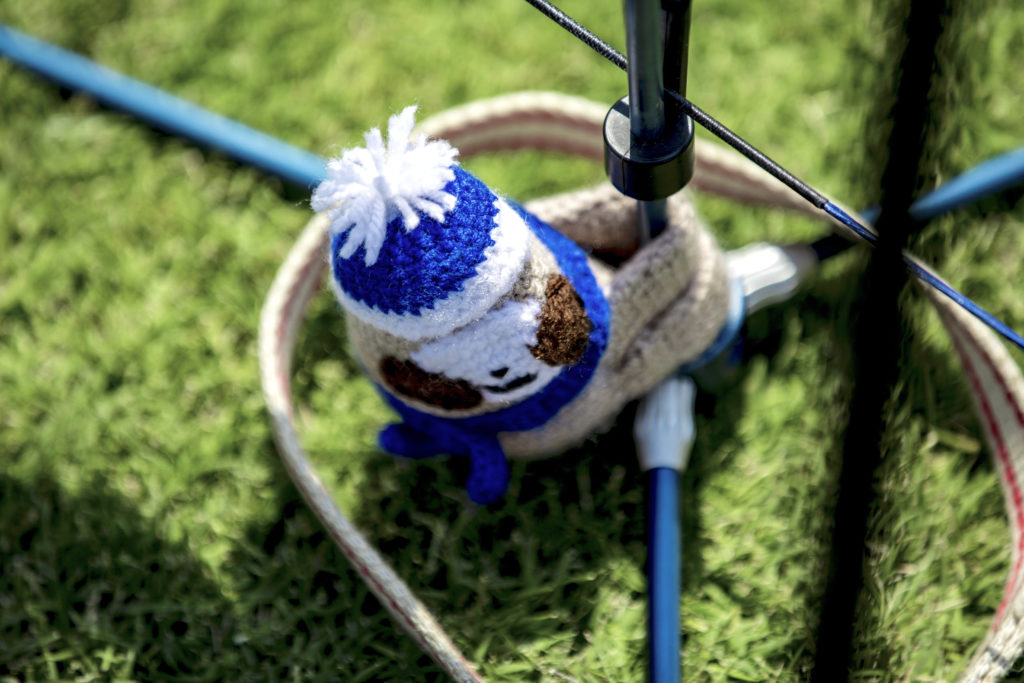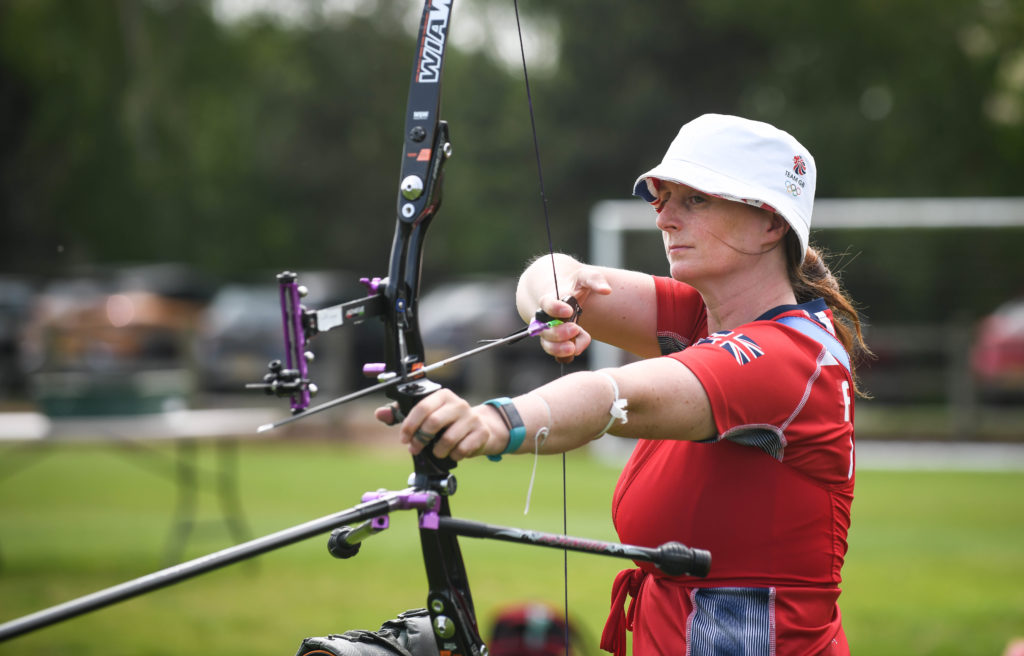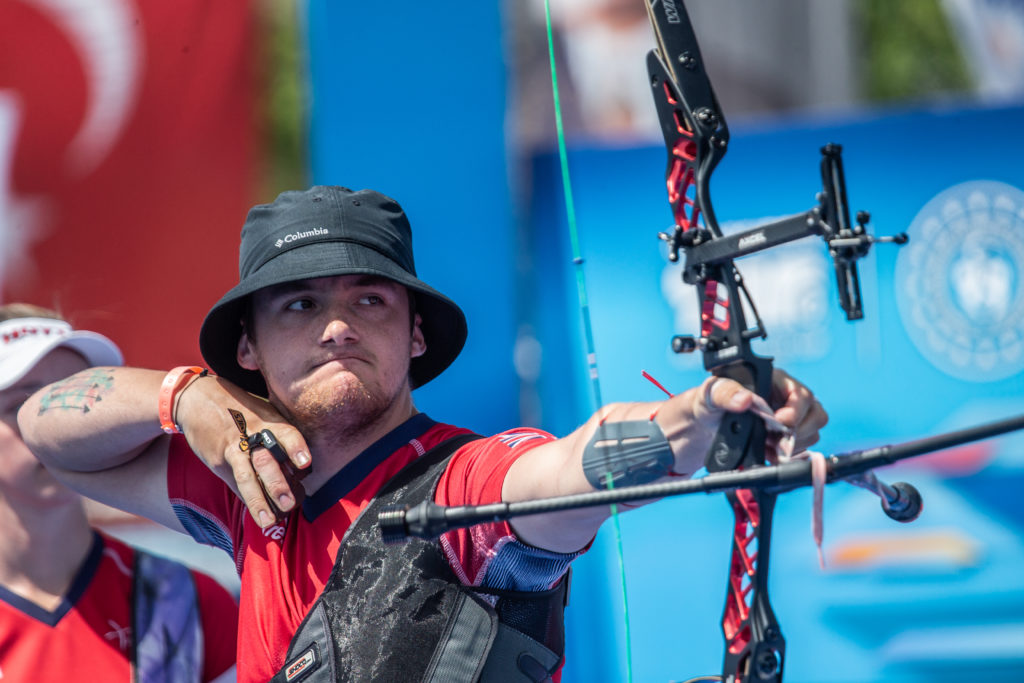Everything you need to know about having time off at the end of the season

Around the world, the outdoor season is becoming longer and longer, starting earlier in the year and ending later in the year. Having a break from the ‘athlete life’ is very important to recharge, recover and relax after the season. Whether you shoot domestically, internationally or recreationally, being able to have a break away from shooting can also ensure the flame and enjoyment of the sport is not lost.
Breaks can help create a happier athlete life, encouraging you to stay in the sport longer and with a higher potential of achieving your goals.
It can be difficult for athletes to take a break due to guilt over not training or worrying about losing strength over their break. This is not the case; the body needs to take a break in order to come and build up to being stronger and better. It is a time that should be anticipated and enjoyed.
How to take time away
At the end of the season, it is important to have a physical and mental rest from archery, just like going on holiday from a job.
There should be at least one whole week that an athlete can spend completely away from training and the training environment to totally disconnect from the athlete life. They should be able to catch up on things outside of the sport that bring joy, such as seeing family and friends, taking a trip or anything that could be missed out on because of athlete life.
It could be a time to pick up a new skill that can be done in the background, such as drawing, reading, knitting or walking. Whatever you choose, pick something outside of archery that can bring attention away during downtime, as well as the break.
It can help to stay active throughout the break without putting in hard training. Doing this keeps an athlete’s body prepared for the return and reduces the risk of injuring their body through disuse.
Activities could include yoga to stretch muscles and keep them working, or walking to give a cardiovascular element to your time off. These will keep the body moving without the strain of full-time training.
Looking back on the season that has just gone is also a good thing to do over the break. Being able to take a step back away from the training environment to see what has been achieved, learned and could be worked on for the next season can help bring a better athlete upon return.
Obviously, every person is different and may need a different amount of time away to recover, reset, and get ready for the next season ahead. Talking to your coach will help put a plan together about how much time off is required and how to get back into training upon your return.
The pro’s perspective
We spoke to Alex Wise, a regular member of the Great Britain international team and the Antalya recuve mixed team silver medallist for 2022. Alex explained why he takes an end of season break, how long for and what he does.
Q: Why do you feel it is important to have an end of season break?
I think it significantly reduces the chance of burnout in an athlete that competes year-round. It is just nice to have one or two weeks off to reset and recharge and do other things that you might enjoy, like going on holiday, seeing your friends and family – general everyday things. It also gives time to reflect on the season gone and consider the season ahead. This encourages me to start thinking about setting goals for the upcoming season.
Q: What do you like to do at the end of The season?
I try to do anything but archery really. I like to go on holiday since it is a time to unwind and rest both my body and mind. I also enjoy spending time with my friends and family – I don’t get to see them very often due to training and competing away from home. It is quite nice to have a weekend or two where I am not travelling to a competition or training.
Q: How long do you take off?
I tend to take anywhere from one to two and a half weeks away from training and the training environment. It is enough time to completely reset and recharge, but I can also take part in some physical activities so my body does not atrophy a drastic amount.
Q: Have you felt or do you feel guilty taking a break?
Not guilty as such, but you can sometimes feel like you are missing out on vital training time. But it is important to remind yourself that the rest is just as important as the training, as you do not want to be burnt out mentally or physically. You have to think about the long-term.
Q: How do you start your training again after The end of season break?
I start off carefully. I do not put my poundage down or take mass weight off my bow, but I manage my volumes of shooting and bow training along with the gym to avoid injuring myself. I then progressively build up to higher arrow volumes and gym sessions as the weeks go on.
The coach’s perspective

Naomi Folkard is a five-time Olympian and now a coach on the Olympic programme at Archery GB. We caught up with Naomi from a coach’s perspective about end of season breaks and her thoughts and ideas around it.
Q: How important is an end of season break for athletes?
Everybody is different, and for some people it is important to have a rest. They might be burnt out from mental exhaustion because of the many competitions or too much training, or they could be physically exhausted if they’ve not had a proper rest.
A break also gives athletes a chance to forget a few of the bad habits they’ve picked up during training. When you come back after two or three weeks, you can start back shooting better. It is easier to make changes to technique when they have had some time away.
Generally, for club archers who are only shooting twice a week, they don’t really need an end of season break. The likelihood is they have gone on holiday already in the year, or they’ve had breaks throughout the year. Having an end of season break is more for full-time athletes to consider.
However, serious archers who have full-time jobs, do a full day’s work and then go training every evening are probably much more at risk of burnout because, although they are not shooting as much as a full-time archer, they still don’t get much of a chance to spend time with their family or relax in the evening. If it is all work, field, sleep, repeat then they should absolutely consider having an end of season break as well to give them a moment to breathe.
Q: How long do you suggest for a time out?
For those people that are burnt out, it is vital that they get the chance to take some time off, and they will probably need a much longer one than most. It might be that two weeks is not enough; three or four weeks is not unheard of for some athletes.
But it also depends on how much time they have over the winter to get themselves ready for the next season. If it is a short winter and they have been competing late into October and the first outdoor competition is in March or even February, then that is not a lot of time to do both their winter training and give themselves a prolonged break. That could make them feel under pressure and that they do not have a lot of time to relax.
For a standard full-time archer it tends to be normal to have a two-week break, and that is in order to give a little bit of life balance. They tend to not have any time off for 50 weeks of the year since they are still training full-time.
There is not much time to think about something other than archery. So being able to go on holiday and relax and not think about archery or what you are doing tomorrow, that is a really nice thing.
Q: How should you help an athlete back after a break?
As a coach you ought to start the athlete back enjoying it and having fun, but it is also a key opportunity to work on technique with a low volume of arrows.
I think the coach and athlete need to decide what is the goal of the first few weeks coming back. Is it to build volume? Or are there some key things to get started on with technique? It can help to plan this before the holiday to help alleviate that anxiety so they don’t have to think about what it will be coming back from their time off.
It could be that the athlete needs to work on strength straight away. They might not have been strong enough at the end of the season, and then a two-week break leaves them a bit weaker. Working on strength straight away could be detrimental to training during the winter.
It is also key to bring back training in a light-hearted way as people are still relaxed when they first return. It is quite hard to transition straight away from holiday mode to training mode, so it will need to be built back up slowly.


